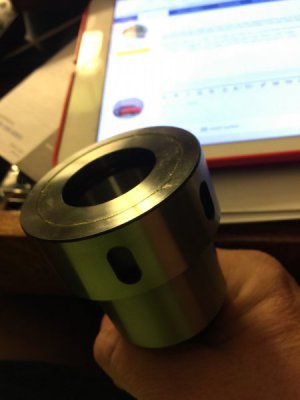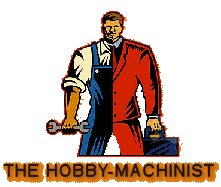- Joined
- Dec 7, 2018
- Messages
- 653
Sigh.....this is the ER40 collet bearing nut from Mari Tool. I didn’t ask for anything but this on their web site.
Here is the detail from their sheet...notice it says that it fits most tool holders regardless of brand!
Product Info
View complete catalog page »
 www.maritool.com
www.maritool.com
Here is the photo of the Mari Tool collet bearing nut from above on my R8 ER40 tooling. I am not sure how to show you anything more than this that it fits and isn’t a special thread or anything else.....perhaps you should call Mari Tool, ask for Frank Mari. He will get you sorted out.

Here is the detail from their sheet...notice it says that it fits most tool holders regardless of brand!
Product Info
View complete catalog page »
- Bearing Collet Nut holds all ER40 collets
- Fits most tool holders, regardless of brand
- Made from alloy steel hardened to 54 - 56rc
- Precision ground ID thread and taper
- Has an internal thread of M50 X 1.5 pitch
- Outside diameter is 2.470 inches (62.7mm)
- This nut is a bearing nut and has internal ball bearings
- Our TG100-WRENCH works on this collet nut
- Internal cam removes collet when unscrewed
- Black oxide finish
- MariTool Part# ER40-BNUT
ER40 BEARING COLLET NUT MariTool
Here is the photo of the Mari Tool collet bearing nut from above on my R8 ER40 tooling. I am not sure how to show you anything more than this that it fits and isn’t a special thread or anything else.....perhaps you should call Mari Tool, ask for Frank Mari. He will get you sorted out.




